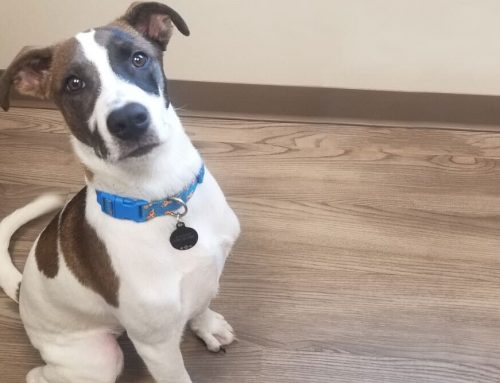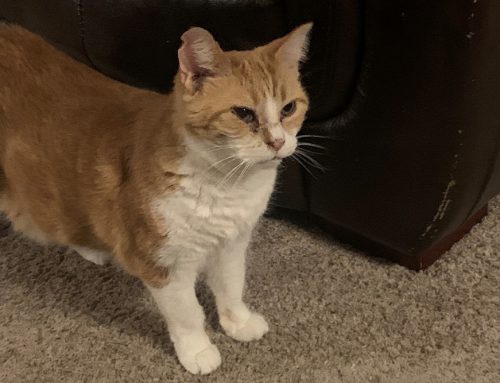
When a dog’s anal sac fills with fluid, abscesses or ruptures, the pet will experience discomfort or pain. Veterinarians have several treatment options at their disposal, and the majority of pets have good recoveries.
Many dogs, and occasionally cats, are prone to retaining fluid in their anal sacs. Sometimes there will be bacterial overgrowth, which can cause an abscess and subsequent rupture. When that happens, the pet can feel discomfort or pain. The good news is the condition is treatable.
Scooter is a dog who started licking his bottom, rubbing his butt along the floor and straining to have a bowel movement. “His owner noticed his appetite decreased, and there were areas near his rump that were red and swollen,” said Dr. Bailey Pietsch. “By the time Scooter got to the clinic, there was an opening next to his anus that had a bloody discharge. Unfortunately, that meant his anal abscess had ruptured.”
Pietsch explained that a dog or a cat has two scent glands adjacent to its anus. When the animals defecate, they secrete fluid onto their stools. “Dogs might have allergies, have soft stools or diarrhea, growths in the anus or rectum, or just their individual anatomy can lead to anal sacs filling but not emptying properly,” she said.
Scooter had a ruptured abscess, so Pietsch manually emptied, flushed and infused a little antibiotic in the sac. She then put him on oral antibiotics. “Scooter also had some pain medication, and his owner helped ease his discomfort with warm compresses,” she said. “If his condition had been worse, he might have needed surgery, but most of the time owners get their pets in before that.” On the bright side, she noted, Scooter seemed to think he was making a fashion statement after he got his e-collar to prevent him from licking and worsening the infection.
Usually, she said, if there isn’t a rupture, the doctor can manually empty the sac and flush it. “Since there’s no open wound, we can infuse antibiotics and usually have good results. If the pet needs it, we also prescribe pain medication and encourage owners to apply warm compresses just like we did with Scooter. Sometimes, if the pet is in a lot of pain and is stressed, we might use sedation during the process,” said Pietsch.

“One thing that is important for owners and their veterinarians is to look at possible causes for the condition. We look at food and environmental allergies, for example, or maybe the pet just needs more fiber in its diet,” she said. “We also need to examine whether swollen tissue or cellulitis might be disguising a tumor, so we always want to do a recheck later.”
Pietsch said that in most cases, pets do very well and make a full recovery. “So long as we treat the underlying concern, we can prevent this from happening again,” she said. “For some pets, this means having our certified vet techs express the pets’ anal sacs on a regular basis. In pets are repeat offenders, or if there is a concern about cancer, we sometimes discuss surgically removing the anal sacs.
For more information or to schedule an appointment, visit https://greendalevillagevet.com/ or call 414-421-1800.







Leave A Comment